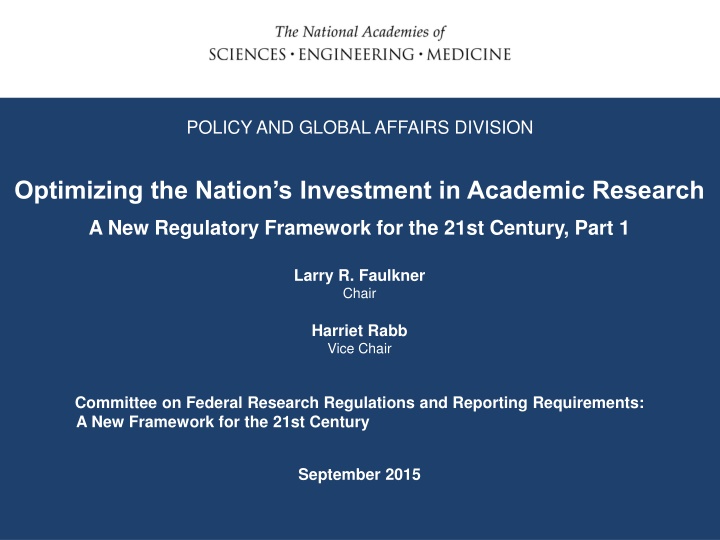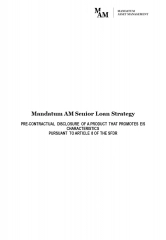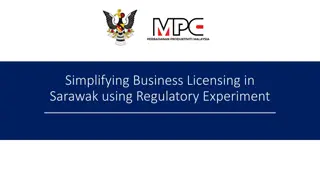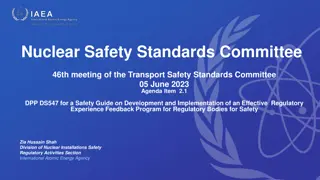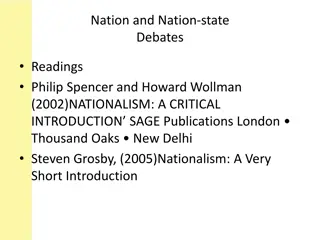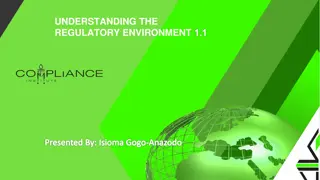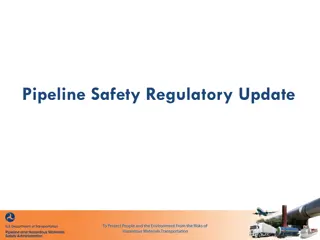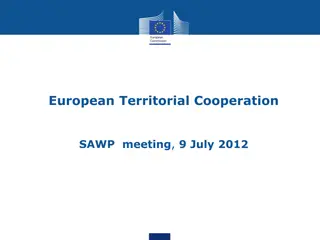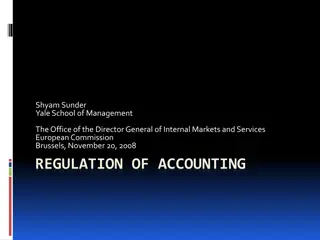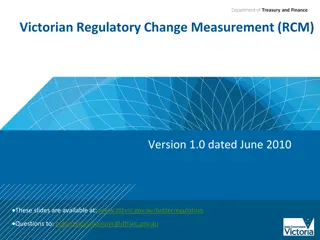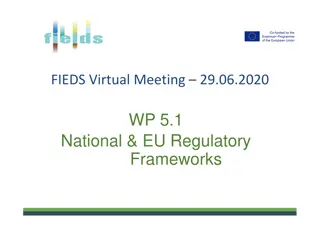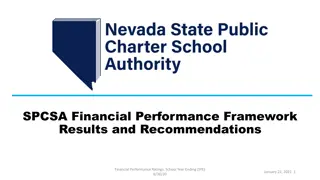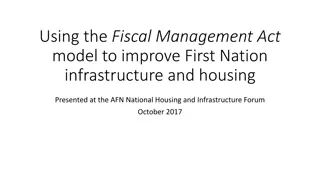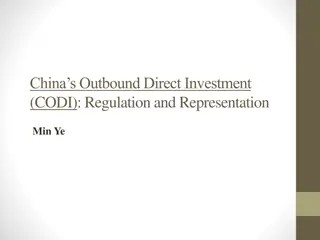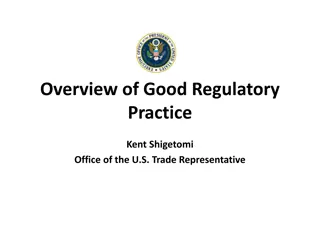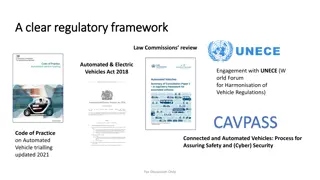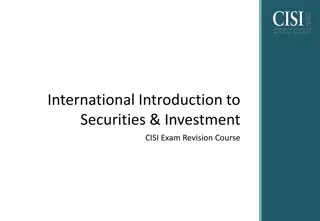Optimizing the Nation's Investment in Academic Research: A New Regulatory Framework
The Committee on Federal Research Regulations and Reporting Requirements is tasked with studying Federal regulations and reporting requirements pertaining to research universities. The aim is to streamline reporting processes, reduce duplication, and enhance the efficiency and effectiveness of research grant programs. By addressing compliance standards and legacy processes, the goal is to free up resources for vital research and educational missions.
Download Presentation

Please find below an Image/Link to download the presentation.
The content on the website is provided AS IS for your information and personal use only. It may not be sold, licensed, or shared on other websites without obtaining consent from the author.If you encounter any issues during the download, it is possible that the publisher has removed the file from their server.
You are allowed to download the files provided on this website for personal or commercial use, subject to the condition that they are used lawfully. All files are the property of their respective owners.
The content on the website is provided AS IS for your information and personal use only. It may not be sold, licensed, or shared on other websites without obtaining consent from the author.
E N D
Presentation Transcript
POLICY AND GLOBAL AFFAIRS DIVISION Optimizing the Nation s Investment in Academic Research A New Regulatory Framework for the 21st Century, Part 1 Larry R. Faulkner Chair Harriet Rabb Vice Chair Committee on Federal Research Regulations and Reporting Requirements: A New Framework for the 21st Century Optimizing the Nation s Investment in Academic Research A New Regulatory Framework for the 21st Century, Part 1 POLICY AND GLOBAL AFFAIRS DIVISION September 2015
Committee on Federal Research Regulations and Reporting Requirements: A New Framework for the 21st Century Larry R. Faulkner, The University of Texas at Austin Harriet Rabb, The Rockefeller University Ilesanmi Adesida, University of Illinois at Urbana-Champaign Ann Arvin, Stanford University Barbara E. Bierer, Harvard Medical School and Brigham and Women s Hospital and Harvard University Jonathan D. Breul, Georgetown University Claude Canizares, Massachusetts Institute of Technology Arturo Casadevall, Johns Hopkins University Bloomberg School of Public Health Jonathan R. Cole, Columbia University Lee Ellis, The University of Texas MD Anderson Cancer Center Geoffrey E. Grant, Research Advocates Joseph R. Haywood, Michigan State University Steven Joffe, University of Pennsylvania Perelman School of Medicine David Korn, Massachusetts General Hospital and Harvard Medical School Charles F. Louis, University of California, Riverside David W. Robinson, Oregon Health and Science University Thomas J. Rosol, The Ohio State University Stuart Shapiro, Rutgers University Optimizing the Nation s Investment in Academic Research A New Regulatory Framework for the 21st Century, Part 1 POLICY AND GLOBAL AFFAIRS DIVISION 2
The Federal Governments partnership with Americas colleges and universities through a variety of research grant programs remains strong but perhaps not as efficient and beneficial for American taxpayers as it could be. University management of Federal contracts, grants, and other awards requires several layers of reporting to multiple agencies, and the costs of unnecessary duplication within and across colleges and universities can be substantial. Resources that should be going to education and research are thereby diverted to less productive activities. Some of this duplication and inefficiency results from a lack of clear compliance standards, while in other cases the burdens result from accrued legacy requirements and processes that need to be reviewed and updated. Removal of unnecessary reporting burdens could free universities to further focus their resources on vital research and educational missions; to achieve this objective we need your help and engagement. Howard Shelanski, David Mader, and Anne Rung National Dialogue: Driving Efficiency for America s Colleges & Universities, The White House August 14, 2015, Optimizing the Nation s Investment in Academic Research A New Regulatory Framework for the 21st Century, Part 1 POLICY AND GLOBAL AFFAIRS DIVISION 3
Charge to the Committee The committee will conduct a study of Federal regulations and reporting requirements with specific attention to those directed at research universities. In conducting its analyses, the committee will be aware of: (a) the context and intended benefits and circumstances under which a particular regulation was issued and may have evolved, and (b) whether those contexts or circumstances still remain of public concern. The committee will develop a new framework for Federal regulation of research universities in the 21st century that addresses the needs of Congress, Federal agencies, and the broader public while advancing to the maximum extent feasible the missions of research universities. Optimizing the Nation s Investment in Academic Research A New Regulatory Framework for the 21st Century, Part 1 POLICY AND GLOBAL AFFAIRS DIVISION 4
Specifically, the committee will: 1. Identify by research agency and statutory authority the Federal regulations with significant impact, and the reporting requirements with which research universities must comply; 2. Work with research universities and associations to gather and review information on personnel time and costs of compliance with Federal regulations and reporting requirements; 3. Work with research universities and associations to gather and review information on methodologies for most efficiently and effectively estimating time, costs and resulting benefits; Optimizing the Nation s Investment in Academic Research A New Regulatory Framework for the 21st Century, Part 1 POLICY AND GLOBAL AFFAIRS DIVISION 5
4. Work with federal research agencies to identify regulations and requirements with significant impact that the committee should review; 5. Work with professional staff of congressional committees with jurisdictional responsibility for regulatory oversight and research funding; 6. Work with the stakeholders such as the Federal Demonstration Partnership to demonstrate methodologies for estimating the personnel time and costs of compliance for a subset of regulations and reporting requirements specific to research universities; Optimizing the Nation s Investment in Academic Research A New Regulatory Framework for the 21st Century, Part 1 POLICY AND GLOBAL AFFAIRS DIVISION 6
7. Develop a framework and supporting principles for the Federal regulation of research universities in the 21st century, taking into account: (a) the purposes, costs, benefits, and reporting requirements of regulation, (b) the processes used to promulgate regulations and reporting requirements, (c) the roles of Congress, Offices of Inspectors General and Federal agencies, including the Office of Science and Technology Policy and the Office of Management and Budget, and (d) the missions of research universities; 8. Recommend steps needed to implement the framework; Optimizing the Nation s Investment in Academic Research A New Regulatory Framework for the 21st Century, Part 1 POLICY AND GLOBAL AFFAIRS DIVISION 7
9. Assess how a subset of regulations and reporting requirements fit within the framework, and offer suggestions for evaluating those regulations and reporting requirements that are outdated or redundant, or where compliance burdens have become disproportionate with expected benefits; and 10.Identify regulations and reporting requirements that will require additional analysis in order to assess their fit with the framework and to develop improved approaches. Optimizing the Nation s Investment in Academic Research A New Regulatory Framework for the 21st Century, Part 1 POLICY AND GLOBAL AFFAIRS DIVISION 8
Although the study was originally planned for 18 months, 3 months after the committee s first meeting, Senator Lamar Alexander, Chair, Senate Committee on Health, Education, Labor and Pensions, asked the committee to deliver an expedited report by summer s end, 2015. As Senator Alexander explained to the that fall 2015 presents a unique opportunity to reconsider, in a bipartisan manner, the regulatory environment governing federally funded research, as Congress will be considering several legislative actions involving higher education, research policy, and medical innovation where it would be appropriate to make changes to the current regulatory structure. Optimizing the Nation s Investment in Academic Research A New Regulatory Framework for the 21st Century, Part 1 POLICY AND GLOBAL AFFAIRS DIVISION 9
Overarching Findings Optimizing the Nation s Investment in Academic Research A New Regulatory Framework for the 21st Century, Part 1 POLICY AND GLOBAL AFFAIRS DIVISION 10
1. Effective regulation is essential to the overall health of the research enterprise, protecting both national investment and the various parties in the partnership. 2. Continuing expansion of the federal regulatory system and its ever growing requirements are diminishing the effectiveness of the nation's research. 3. Most federal regulations, policies, and guidance, in and of themselves, are efforts to address important issues of accountability and performance, but these well-intended efforts often result in unintended consequences that needlessly encumber the nation's investment in research. 4. Many regulations fail to recognize the significant diversity of academic research. Optimizing the Nation s Investment in Academic Research A New Regulatory Framework for the 21st Century, Part 1 POLICY AND GLOBAL AFFAIRS DIVISION 11
5. When regulations are inconsistent, duplicative, or unclear, universities may place additional requirements on research investigators, thereby diminishing the effectiveness of the national investment in research. 6. Academic research institutions often receive research funding from multiple federal agencies, but approaches to similar shared goals and requirements are not harmonized across these agencies. 7. Some academic research institutions have failed to respond appropriately to investigators' transgressions or failed to use effectively the range of tools available to create an environment that strongly discourages, at both the institutional and the individual level, behaviors in conflict with the standards and norms of the scientific community. Optimizing the Nation s Investment in Academic Research A New Regulatory Framework for the 21st Century, Part 1 POLICY AND GLOBAL AFFAIRS DIVISION 12
8. Academic research institutions may be audited by any agency's Inspector General office, many of which have very different approaches that in some cases are incongruent with stated policies of their agency. 9. The relationship between federal research funding agencies and academic research institutions has for the past seven decades seen considered a partnership. Yet, there exists no formal entity, mechanism, or process by which senior stakeholders from both partners, dedicated to fostering, sustaining, and strengthening our nation's unique research partnership, can consider the effectiveness of existing research policies and review proposed new policies needed to sustain a maximally dynamic, efficient, and effective research enterprise. Optimizing the Nation s Investment in Academic Research A New Regulatory Framework for the 21st Century, Part 1 POLICY AND GLOBAL AFFAIRS DIVISION 13
Overarching Recommendations Optimizing the Nation s Investment in Academic Research A New Regulatory Framework for the 21st Century, Part 1 POLICY AND GLOBAL AFFAIRS DIVISION 14
RECOMMENDATION 1 The regulatory regime (comprising laws, regulations, rules, policies, guidances, and requirements) governing federally funded academic research should be critically reexamined and recalibrated. Optimizing the Nation s Investment in Academic Research A New Regulatory Framework for the 21st Century, Part 1 POLICY AND GLOBAL AFFAIRS DIVISION 15
RECOMMENDATION 2 To advance the government-academic research partnership, research institutions must demand the highest standards in institutional and individual behavior. This can only be achieved if universities foster a culture of integrity among academic leaders, faculty, post-doctoral trainees,-students, and staff, and -institutional-administrators, and mete out appropriate sanctions in instances where behavior deviates from the ethical and professional norms of the institution and of the academic research community. Universities that deviate from or fail to enforce the norms of behavior should be sanctioned. The committee recommends that a newly established Research Policy Board should collaborate with research institutions on the development of a policy to hold institutions accountable for such transgressions. Optimizing the Nation s Investment in Academic Research A New Regulatory Framework for the 21st Century, Part 1 POLICY AND GLOBAL AFFAIRS DIVISION 16
RECOMMENDATION 3 Inspectors General responsibilities should be rebalanced so that appropriate consideration is given both to uncovering waste, fraud, and abuse and to advising on economy, efficiency, and effectiveness. The relationship between Inspectors General and research institutions should be based on a shared commitment to advancing the nation's interest through a dynamic and productive research enterprise. Optimizing the Nation s Investment in Academic Research A New Regulatory Framework for the 21st Century, Part 1 POLICY AND GLOBAL AFFAIRS DIVISION 17
RECOMMENDATION FOUR The committee recommends the creation of a new mechanism, to include an active public-private forum and a designated official within government, to foster a more effective conception, development, and harmonization of research policies. Optimizing the Nation s Investment in Academic Research A New Regulatory Framework for the 21st Century, Part 1 POLICY AND GLOBAL AFFAIRS DIVISION 18
Specific Recommendations Optimizing the Nation s Investment in Academic Research A New Regulatory Framework for the 21st Century, Part 1 POLICY AND GLOBAL AFFAIRS DIVISION 19
Specific Recommendations Proposal Preparation The Audit Climate Compensation for Personnel Expenses Uniform Guidance - procurement standards - financial reporting - cost accounting Research Policy Board Progress Reports Subrecipient Monitoring Conflict of Interest Human Subjects Research Animal Research Optimizing the Nation s Investment in Academic Research A New Regulatory Framework for the 21st Century, Part 1 POLICY AND GLOBAL AFFAIRS DIVISION 20
Proposal Preparation: 1. Congress should in concert with the OMB, conduct a transparent and comprehensive review of agency research grant proposal documents for the purpose of developing a uniform format to be used by all research funding agencies. 2. Research proposal information should be limited to the minimal information necessary to permit peer evaluation of the science. Any supplementary information should, if requested, be provided just-in-time. 3. Agencies should develop a central depositary for all institutional assurances. Optimizing the Nation s Investment in Academic Research A New Regulatory Framework for the 21st Century, Part 1 POLICY AND GLOBAL AFFAIRS DIVISION 21
Progress Reports: 1. The committee recommends that OMB require that research funding agencies use a uniform format for research progress reporting. Optimizing the Nation s Investment in Academic Research A New Regulatory Framework for the 21st Century, Part 1 POLICY AND GLOBAL AFFAIRS DIVISION 22
Subrecipient Monitoring: 1. OMB should amend the Uniform Guidance to clarify that subrecipient monitoring requirements apply to institutions of higher education only to the extent necessary for prudent project and performance monitoring, and do not require monitoring of subrecipients institutional compliance with all federal statues, regulations, policies, and institution-wide business practices. 2. Immediately, OMB should permit research institutions to use subrecipients publicly available Single Audit Reports to verify that subrecipients have not been otherwise debarred or suspended with respect to the receipt of federal funds. Optimizing the Nation s Investment in Academic Research A New Regulatory Framework for the 21st Century, Part 1 POLICY AND GLOBAL AFFAIRS DIVISION 23
Conflict of Interest: 1. Congress in concert with OSTP and in partnership with research institutions, should develop a federal-wide financial conflicts of interest policy to be used by all research funding agencies. Optimizing the Nation s Investment in Academic Research A New Regulatory Framework for the 21st Century, Part 1 POLICY AND GLOBAL AFFAIRS DIVISION 24
Human Subjects Research: (To be reviewed further in light of the 9-8-15 NPRM for the Common Rule) 1. Congress should direct federal agencies to institute a risk-stratified system of human subjects protections that reduces regulatory burden on minimal-risk research while reserving more intensive regulatory oversight for higher risk research. 2. Congress should direct federal agencies to require, for multisite research studies, that a single IRB with the necessary staff and infrastructure serve as the IRB of record for all domestic sites. 3. Congress should direct agencies to align and harmonize their regulations (and definitions) concerning the protection of human subjects. Optimizing the Nation s Investment in Academic Research A New Regulatory Framework for the 21st Century, Part 1 POLICY AND GLOBAL AFFAIRS DIVISION 25
Human Subjects Research (cont.): 4) In instances of minimal-risk research where requiring informed consent would make the research impracticable, the committee recommends that Congress amend the FDA s authority so as to allow the FDA to develop criteria for waiver or modification of the requirement of informed consent for minimal-risk research. 5) Congress should instruct HHS to work with other agencies to ensure that research involving biospecimens is eligible for a waiver or modification of informed consent, so long as the proposed research meets the conditions for waiver or modification of informed consent as specified in the Common Rule. Optimizing the Nation s Investment in Academic Research A New Regulatory Framework for the 21st Century, Part 1 POLICY AND GLOBAL AFFAIRS DIVISION 26
Animal Research: 1. Congress should direct OMB to convene representatives from federal agencies and the research community to assess and report back to Congress on the feasibility and utility of developing a unified federal approach for the development, promulgation, and management of policies and regulations pertaining to the care and use of research animals. Optimizing the Nation s Investment in Academic Research A New Regulatory Framework for the 21st Century, Part 1 POLICY AND GLOBAL AFFAIRS DIVISION 27
Animal Research (cont.): 2. Reporting, assurances, and verifications to agencies should be reduced and streamlined. Agencies should adjust their requirements for reporting such that animal- related noncompliance reports are tiered to the level of significance or impact on animals and included in an annual report rather than on an individual event basis. Annual reports to individual agencies about animal care programs should be replaced by a single annual report under the proposed Federalwide Assurance mechanism. 3. Research institutions should assess their own regulatory processes to determine where their compliance activities can be streamlined while still complying with federal regulations. Optimizing the Nation s Investment in Academic Research A New Regulatory Framework for the 21st Century, Part 1 POLICY AND GLOBAL AFFAIRS DIVISION 28
The Audit Climate: 1. Inspector Generals should resolve issues regarding their interpretation of agency policies and priorities with the agency before conducting formal audits of research institutions. 2. Inspector generals should include in their semiannual reports and highlight in their presentations to Congress examples of effective, innovative, and cost- saving initiatives undertaken by research institutions and federal research agencies that both advance and protect the research enterprise. 3. They should provide to Congress and make publicly available information generated each year on the total costs (agency and institutional) of Inspectors General audits of research institutions, the total amounts of initial findings, and the total amounts paid by institutions after audit resolution. Optimizing the Nation s Investment in Academic Research A New Regulatory Framework for the 21st Century, Part 1 POLICY AND GLOBAL AFFAIRS DIVISION 29
The Audit Climate (cont.): 4. Inspector Generals should reexamine the risk-based methodology in identifying institutions as candidates for agency audits to take into account the existing compliance environment and oversight on campuses, recognizing that many research institutions have clean single audits, are well managed, and have had long-standing relationships with the federal government. 5. Encourage all agency Inspector Generals to report only final audit resolution findings on their websites and in their semiannual reports to Congress. Optimizing the Nation s Investment in Academic Research A New Regulatory Framework for the 21st Century, Part 1 POLICY AND GLOBAL AFFAIRS DIVISION 30
Compensation for Personnel Expenses: 1. The committee recommends that Congress, in concert with OMB, affirm that research institutions may take advantage of the flexibility provided by the Uniform Guidance with regard to the documentation of personnel expenses. Optimizing the Nation s Investment in Academic Research A New Regulatory Framework for the 21st Century, Part 1 POLICY AND GLOBAL AFFAIRS DIVISION 31
Uniform Guidance: Procurement Standards Financial Reporting Cost Accounting Essentially reinforce the recommendations of COGR. Optimizing the Nation s Investment in Academic Research A New Regulatory Framework for the 21st Century, Part 1 POLICY AND GLOBAL AFFAIRS DIVISION 32
A New Regulatory Framework Three Components 1. Research Policy Board 2. Associate Director, Academic Research Enterprise, OSTP 3. Principles to Guide the Regulatory Framework Optimizing the Nation s Investment in Academic Research A New Regulatory Framework for the 21st Century, Part 1 POLICY AND GLOBAL AFFAIRS DIVISION 33
(RPB) Research Policy Board 1. Mission to improve the regulatory environment 2. Broadly representative of high-level academic research institutions; with agency liaison representation. 3. Make recommendations concerning the conception, development, and harmonization of policies having similar purposes across research agencies. 4. An effective RPB would provide a means for leveraging the excellent work being done by higher education associations in identifying issues and recommending changes in research regulations. Optimizing the Nation s Investment in Academic Research A New Regulatory Framework for the 21st Century, Part 1 POLICY AND GLOBAL AFFAIRS DIVISION 34
Associate Director, Academic Research Enterprise, OSTP 1. Principal Federal official responsible for coordination of Federal policy relating to Federally funded research in academic institutions 2. In partnership with OMB, assist in the coordination of the conception, development, and harmonization of policies having similar purposes across research agencies 3. Ensure input from the RPB and the research community is considered in the development of all policy mechanisms affecting research, i. e., regulation, agency policy application and report formats, etc. Optimizing the Nation s Investment in Academic Research A New Regulatory Framework for the 21st Century, Part 1 POLICY AND GLOBAL AFFAIRS DIVISION 35
Principles to Guide the Regulatory Framework 1. Regulations should reflect the shared commitment of academic research institutions and Federal agencies to the effective and efficient conduct of research and maintenance of research integrity 2. Regulations should be harmonized across Federal research agencies 3. Regulations should be written with the input of the RPB (and research institutions) 4. Regulations and enforcement should take into account the risk of malfeasance and the overall cost of compliance Optimizing the Nation s Investment in Academic Research A New Regulatory Framework for the 21st Century, Part 1 POLICY AND GLOBAL AFFAIRS DIVISION 36
Schematic Representation of Relationships in a New Regulatory Framework Optimizing the Nation s Investment in Academic Research A New Regulatory Framework for the 21st Century, Part 1 POLICY AND GLOBAL AFFAIRS DIVISION 37
Questions & Comments Optimizing the Nation s Investment in Academic Research A New Regulatory Framework for the 21st Century, Part 1 POLICY AND GLOBAL AFFAIRS DIVISION
